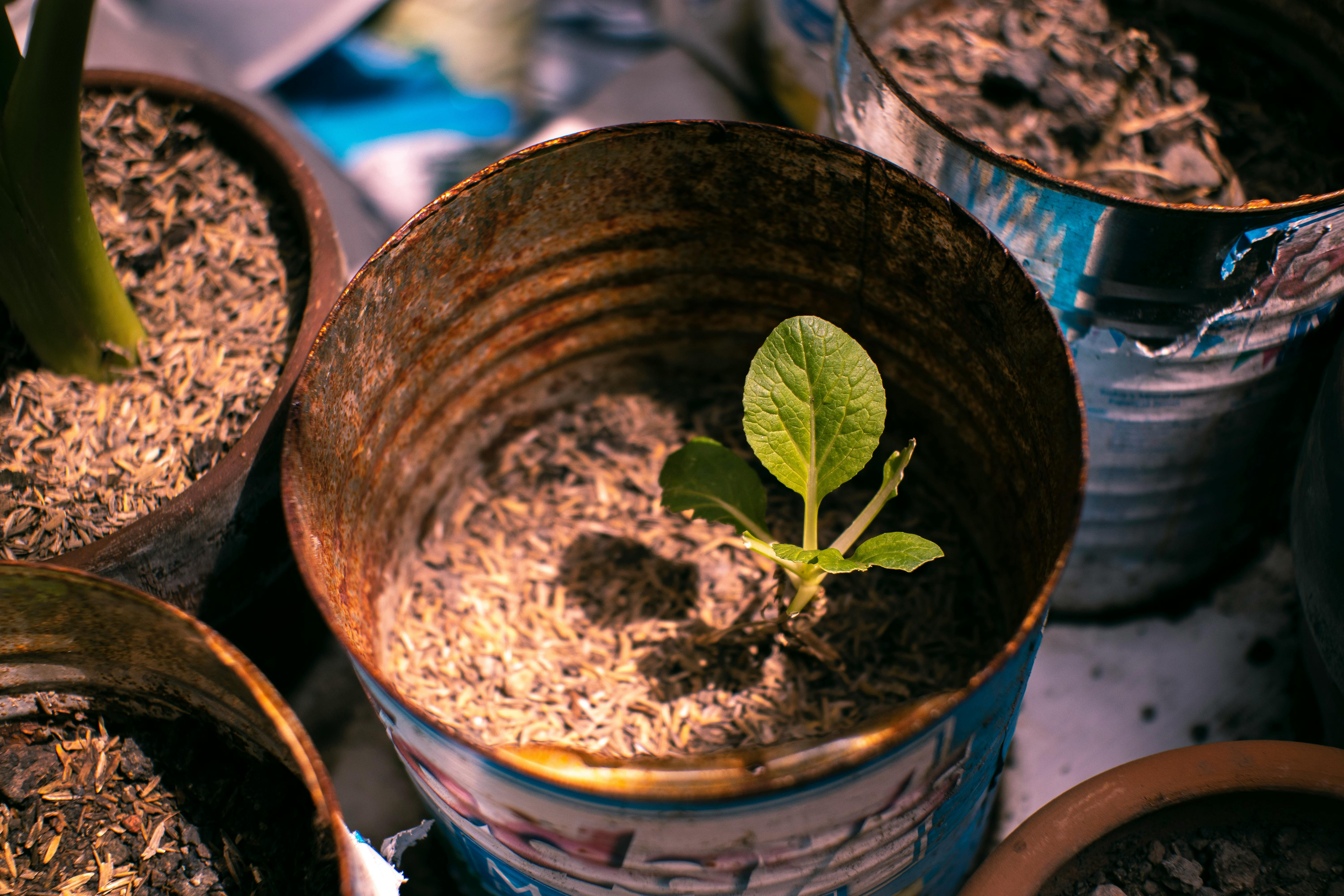Introducing seasonings into your baby’s diet can be a great way to introduce them to new flavors and foods. But, it’s important to know what seasonings are safe for babies and when they can start eating them. In this article, we’ll discuss what seasonings are safe for babies, how much seasoning is safe, and when you can start introducing them to your baby’s meals.It is safe for babies to consume seasonings such as herbs, including basil, oregano, parsley, and thyme; spices such as cinnamon, nutmeg, and turmeric; and salt-free spice blends. However, it is important to consult with a pediatrician before introducing any new seasonings to a baby’s diet.
Is Salt Safe for Babies?
Salt is an essential mineral that is required in our diets, but it is important to be aware of the recommended intake for babies and young children. While small amounts of salt are important for good health, too much can be dangerous. Therefore, it is important to be aware of the recommended daily allowance of salt for babies and young children, as well as any foods that contain high levels of salt.
Babies under six months should not receive any added salt or salty foods, such as processed foods or sauces. The World Health Organization (WHO) recommends that babies between 6-12 months should not exceed 1g (1000mg) of salt per day. Furthermore, it is advised that children over one year should not consume more than 2g (2000mg) of salt per day.
When adding any type of seasoning to food for a baby or young child, it is best to avoid highly salty seasonings such as soy sauce, fish sauce and rock salt. Instead opt for herbs and spices such as basil or oregano which will add flavour without the risk of over-salting the food.
It is also important to keep an eye on processed foods such as sausages, ham and cheese which can contain high levels of salt. To reduce the amount of salt in these products opt for low-salt varieties where possible or check the nutrition label to ensure you are selecting a product with a low level of sodium per serving.
In summary, small amounts of salt are necessary for good health however too much can be dangerous, particularly in babies and young children who are still developing. Therefore it is important to be aware of how much salt your baby or young child should have each day and select low-salt options where possible when choosing seasonings and processed foods.
Herbs and Spices for Babies
Herbs and spices are an essential part of any baby’s diet as they provide essential vitamins, minerals, and antioxidants. Herbs and spices can help baby’s digestive system, boost their immune system, and even aid in their development. But which herbs and spices are safe for babies?
The good news is that there are many great herbs and spices that are perfect for babies. Some of the most popular include ginger, turmeric, cumin, garlic, fennel, black pepper, cinnamon, cardamom, aniseed, coriander seed, basil, oregano and thyme. These herbs and spices can be added to purees or cooked food to add flavor as well as nutrition to your baby’s diet.
Ginger is a great herb for babies as it helps with digestion and aids in nausea relief. It also contains anti-inflammatory properties which make it a great choice for relieving colic or teething pain. Turmeric is another great herb for babies as it has incredible antioxidant properties that can help boost their immune system. It also helps with digestion and can be used to treat colds or coughs.
Cumin is another excellent choice for adding flavor to baby food. It has antibacterial properties that can help with digestion while also providing iron which is important for healthy growth in babies. Garlic is also a great choice for adding flavor to food while providing essential vitamins such as vitamin B6 which helps support the immune system.
Fennel has many benefits including aiding digestion while relieving gas pains. Black pepper adds flavor while providing antifungal properties that help fight off infections. Cinnamon is also a great way to add flavor while providing antioxidants that help boost the immune system.
These are just some of the many herbs and spices that are safe for babies to consume. Be sure to speak with your pediatrician before introducing new foods into your baby’s diet so you can ensure they get all the nutrients they need while avoiding any potential allergens or reactions.
The Benefits of Seasoning Baby Food
Seasoning baby food is a great way to introduce your little one to different flavors and ingredients. It can help to expand a baby’s palate and open them up to trying new things. Not only that, but it can also be beneficial for their overall health and development. Here are some of the benefits of seasoning baby food:
Encourages Eating
Babies can be picky eaters, especially when it comes to trying new foods. By seasoning their food with mild flavors like herbs, spices, and other ingredients, you can make the food more appealing and encourage your baby to try it. This is a great way to introduce them to different tastes without overpowering their palette.
Good for Digestion
Certain herbs and spices have been used for centuries as natural remedies for digestive problems. Adding these ingredients to your baby’s food can help with digestion and reduce symptoms of gas or bloating. For example, ginger is known for its anti-inflammatory properties and is often used in traditional medicine for digestive issues.
Enhances Nutrients
Herbs and spices are full of vitamins, minerals, antioxidants, and other nutrients that are beneficial for babies’ growth and development. By adding them to your baby’s food, you can enhance the nutritional content of the dish without compromising on taste or texture. In addition, these ingredients may also help boost immunity by fighting off harmful bacteria.
As you can see, there are many benefits of seasoning baby food. Not only does it make the meals more enjoyable for your little one, but it also helps with digestion and provides additional nutrients that are essential for their growth and development. So don’t hesitate – start introducing herbs and spices into your baby’s meals today!
Adding Flavor to Baby Food with Seasonings
Introducing seasonings to baby food is an easy way to add flavor and nutrition. Seasonings are a great way to introduce new flavors and textures to a baby’s diet. With the right seasoning, you can easily adjust the flavor of any food and create a delicious meal that your baby will love. Here are some tips for adding flavor to baby food with seasonings.
When introducing seasonings to baby food, start with milder flavors like herbs such as parsley, oregano or basil. These herbs are mild enough for babies and provide great flavor without overpowering the dish. You can also try adding dried spices like cumin or coriander which have a milder flavor than fresh spices.
You can also use fresh ingredients when adding flavor to baby food. Try adding fresh herbs like mint, dill or chives for more vibrant flavors. You can also experiment with garlic, onions or ginger which all provide great flavor as well as health benefits. If you’re looking for more intense flavors, try adding chili peppers or curry powder.
When using seasonings in baby food, be sure to adjust the amount based on your baby’s taste preferences. Start with small amounts and gradually increase the amount as your baby gets used to the new flavors. It’s also important to consider how the seasoning will affect the overall texture of the dish; some seasonings may make it too salty or spicy for a young palate so be sure to adjust accordingly.
Adding seasonings is an easy way to add flavor and nutrition to any dish without compromising on taste or safety. With these tips, you can easily create delicious meals for your little one that they’ll love!

Introducing New Seasonings to Baby Food
Introducing new flavors to baby food can be a great way to expand their palates and give them exposure to a variety of different tastes. While you should always consult with your pediatrician before introducing any new foods or seasonings, there are some tips to keep in mind when introducing new seasonings to baby food.
First, start with mild spices and herbs like garlic, oregano, thyme, basil, and parsley. These flavors can be easily added to purées or mashed vegetables for babies six months and up. As your baby gets older, you can start introducing more complex flavor combinations such as curry powder or cumin.
You should also be aware of the potential allergies that may come from adding certain spices. If your baby has a known allergy it is important that you avoid adding any seasoning containing that ingredient. Additionally, be mindful of the salt content in certain seasonings when giving them to children under two years old since their kidneys may not be able to process the sodium as efficiently as an adult’s.
When introducing any new food or seasoning it is important to go slowly and watch for any signs of allergic reactions or digestive issues. Start by adding just a pinch of the seasoning and gradually increase over time if needed. It is also important to let your baby explore different flavors on their own by allowing them to try the food without any added seasoning first so they can get used to the taste before adding spice.
Introducing new seasonings can help broaden your baby’s palate while still ensuring that they are getting all the nutrition they need from their food. As long as you take precautions and go slowly it can be a great way for your little one to explore different tastes and textures.
How Much is the Right Amount of Seasoning?
Seasoning food to enhance its flavor is an art form. Knowing how much seasoning to use on a dish can make or break its taste. Too little seasoning can leave a meal bland and unappetizing, while too much can overpower the flavors and ruin a dish. Understanding the right amount of seasoning for each dish is essential to creating dishes with great flavor.
When it comes to using herbs and spices, the best way to determine how much seasoning to use is by tasting as you go. Start with a small amount of seasoning and add more until it tastes right. This way, you can determine exactly what works for that particular dish and avoid over-seasoning it. However, when using salt, it’s important to be careful not to overdo it, as too much salt can ruin the flavor of your food.
Knowing how much seasoning to use also depends on your personal tastes. Everyone has different preferences when it comes to spiciness or saltiness in food, so start with a small amount and increase if needed according to your own preferences. It’s also important not to forget about other ingredients in the recipe; some ingredients may require more seasoning than others, so adjust accordingly based on what’s already in the dish.
When in doubt, remember that it’s always better to under-season than over-season your food; you can always add more if needed but you can’t take away once it’s already been added! Seasonings should also be added gradually throughout the cooking process in order for their flavors to meld properly with other ingredients in the dish. With practice and attention to detail, you’ll eventually learn how much seasoning is right for each type of dish you make!
Store-Bought Baby Foods Safely Seasoned?
Store-bought baby foods are a great way to ensure that your baby is getting the nutrition they need. However, it’s important to make sure that the baby food you buy is safely seasoned. Many store-bought baby foods contain added sugar, salt, and other additives which can be harmful to a baby’s developing body. It’s important to read labels carefully and choose foods that are low in added sugars, sodium, and other additives.
When preparing homemade baby food, it is important to use fresh ingredients whenever possible. This will help ensure that the food is nutritious and free from any potential contaminants or preservatives. When seasoning your homemade baby food, it is best to use herbs and spices instead of salt or sugar. Herbs and spices can add flavor without adding unnecessary calories or additives that could be harmful for your baby’s health.
It is also important to pay attention to texture when selecting store-bought or homemade baby foods. Babies are still learning how to chew and swallow different textures so it is important to choose foods that are safe for them to eat. This means avoiding any foods with large chunks or pieces that could cause choking.
In conclusion, it is essential for parents to be aware of what ingredients are in their store-bought baby food in order to make sure it is safely seasoned. Parents should also be mindful of what textures they offer their babies in order to avoid any potential choking hazards. Finally, when preparing homemade baby food, it is best practice to use fresh ingredients and season with herbs and spices instead of salt or sugar for added flavor without the extra calories or additives that could be potentially harmful for their little ones’ health.

Conclusion
In conclusion, it is clear that there is a wide range of seasonings and herbs that are safe for babies to consume. They should be given in small amounts and in moderation, as too much of any seasoning can be overwhelming for a young digestive system. Additionally, it is important to take into account the individual preferences of your child. If they don’t seem to like the flavor of a particular seasoning or herb, then it is best to avoid giving it to them.
Ultimately, when introducing seasonings and herbs into your baby’s diet, it is important to remember that less is more. As long as you do this gradually and keep an eye on any adverse reactions, then you can be sure that your baby will enjoy the new flavors while continuing to receive all the essential nutrients they need for healthy growth and development.




